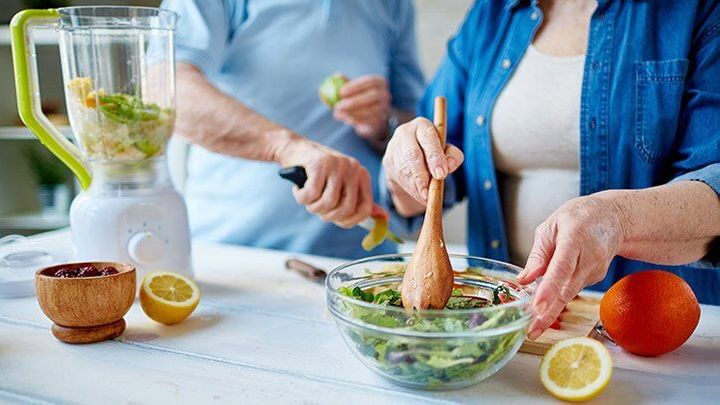How to cut down sugar by diet
Sugar’s many guises
There are lots of different ways added sugar can be listed on ingredients labels:
sucrose
glucose
fructose
maltose
fruit juice
molasses
hydrolyzed starch
invert sugar
corn syrup
honey
Food labels tell you how much sugar a food contains:
high in sugar – 22.5g or more of total sugar per 100g
low in sugar – 5g or less of total sugar per 100g
Some packaging uses a colour-coded system that makes it easy to choose foods that are lower in sugar, salt and fat. Look for more “greens” and “ambers”, and fewer “reds”, in your shopping basket.
Breakfast
Many breakfast cereals are high in sugar. Try switching to lower-sugar cereals or those with no added sugar, such as:
plain wheat biscuit cereal
plain shredded wholegrain cereal
no-added-sugar muesli
plain porridge
wholemeal toast
plain natural yoghurt topped with chopped fruit
Porridge oats are cheap and contain vitamins, minerals and fibre. Make porridge with semi-skimmed, 1% or skimmed milk, or water.
If you usually add sugar to your porridge, try adding a few chopped dried apricots or a sliced or mashed banana instead.
For a more gradual approach, you could eat sugary cereals and plain cereals on alternate days, or mix both in the same bowl.
If you add sugar to your cereal, you could try adding less. Or you could eat a smaller portion and add some chopped fruit, such as a pear or banana, which is an easy way of getting some of your 5 A Day.
If toast is your breakfast staple, try wholemeal or granary bread, which is higher in fibre than white bread, and see if you can get by with a little less of your usual spreads like jam, marmalade, honey or chocolate. Or you could try sugar-free or lower-sugar options.
Main meals
Many foods that we do not consider to be sweet contain a surprisingly large amount of sugar. Some ready-made soups, stir-in sauces and ready meals can also be higher in sugar than you think.
When eating out or buying takeaways, watch out for dishes that are typically high in sugar, such as sweet and sour dishes, sweet chilli dishes and some curry sauces, as well as salads with dressings like salad cream, which can also be high in sugar.
Condiments and sauces such as ketchup can have as much as 23g of sugar in 100g – roughly half a teaspoon per serving. These foods are usually served in small quantities, but the sugar count can add up if eaten every day.
Snacks
Healthier snack options are those without added sugar, such as fresh or tinned fruit (in juice, not syrup), unsalted mixed nuts, plain popcorn, rice cakes, crackers topped with lower-fat cheese or lower-sugar yoghurts.
If you are not ready to give up your favourite flavours, you could start by having less. Instead of 2 biscuits in 1 sitting, try having 1. If your snack has 2 bars, have 1 and share the other, or save it for another day.
If you’re an “all-or-nothing” type person, you could find something to do to take your mind off food on some days of the week.
When shopping, look out for lower-sugar (and lower-fat) versions of your favourite snacks. Buy smaller packs, or skip the family bags and just go for the normal-sized one instead.
Here are some lower-calorie substitutes for popular snacks:
cereal bars – despite their healthy image, many cereal bars can be high in sugar and fat. Look out for bars that are lower in sugar, fat and salt.
chocolate – swap for a lower-calorie hot instant chocolate drink. You can also get chocolate with coffee and chocolate with malt varieties.
biscuits – swap for oatcakes, oat biscuits, or unsalted rice cakes, which also provide fibre.
cakes – swap for a plain currant bun, fruit scone, or malt loaf. If you add toppings or spreads, use them sparingly or choose lower-fat and lower-sugar varieties.
Dried fruit, such as raisins, dates and apricots, is high in sugar and can be bad for your dental health because it sticks to your teeth.
To prevent tooth decay, dried fruit is best enjoyed at mealtimes – as part of a dessert, for example – rather than as a snack.
Drinks
Nearly a quarter of the added sugar in our diets comes from sugary drinks, such as fizzy drinks, sweetened juices, milkshakes and cordials.
A can of regular cola contains 7 teaspoons of sugar (35g). Try swapping to water, sugar-free or no-added-sugar drinks or lower-fat milks.
If you take sugar in tea or coffee, gradually reduce the amount until you can cut it out altogether, or try swapping to sweeteners instead. Try some new flavours with herbal teas, or make your own with hot water and a slice of lemon or ginger.
Like some fizzy drinks, fruit juice can be high in sugar. When juice is extracted from the whole fruit to make fruit juice, sugar is released, and this can damage your teeth.
Your combined total of drinks from fruit juice, vegetable juice and smoothies should not be more than 150ml a day – which is a small glass. For example, if you have 150ml of orange juice and 150ml smoothie in one day, you’ll have exceeded the recommendation by 150ml.
Fruit juices and smoothies do contain vitamins and minerals and can count towards your 5 A Day. However they can only ever count as a maximum of 1 portion of your 5 A Day. For example, if you have 2 glasses of fruit juice and a smoothie in 1 day, that still only counts as 1 portion.
You could try flavouring water with a slice of lemon, lime, or a splash of fruit juice. But watch out for the sugar content in squash or cordials with added sugar. Some can contain up to 3 teaspoons of sugar in each glass.
Dessert
Work out some ground rules. Do you need to have dessert every day? How about only having dessert after your evening meal, or only eating dessert on odd days of the month, or only on weekends, or only at restaurants?
Do you have to have chocolate, biscuits, and cake every day? If you had this type of sugary snack less often, would you actually enjoy it more?
Less sugary desserts include fruit – fresh, frozen, dried, or tinned, but choose those canned in juice rather than syrup – as well as lower-fat and lower-sugar rice pudding, and plain lower-fat yoghurt.
However, lower fat does not necessarily mean low sugar. Some lower-fat yoghurts can be sweetened with refined sugar, fruit juice concentrate, glucose, and fructose syrup.
If you’re stuck between choosing 2 desserts at the supermarket, why not compare the labels on both packages and go for the one with the lower amount of sugar.










































